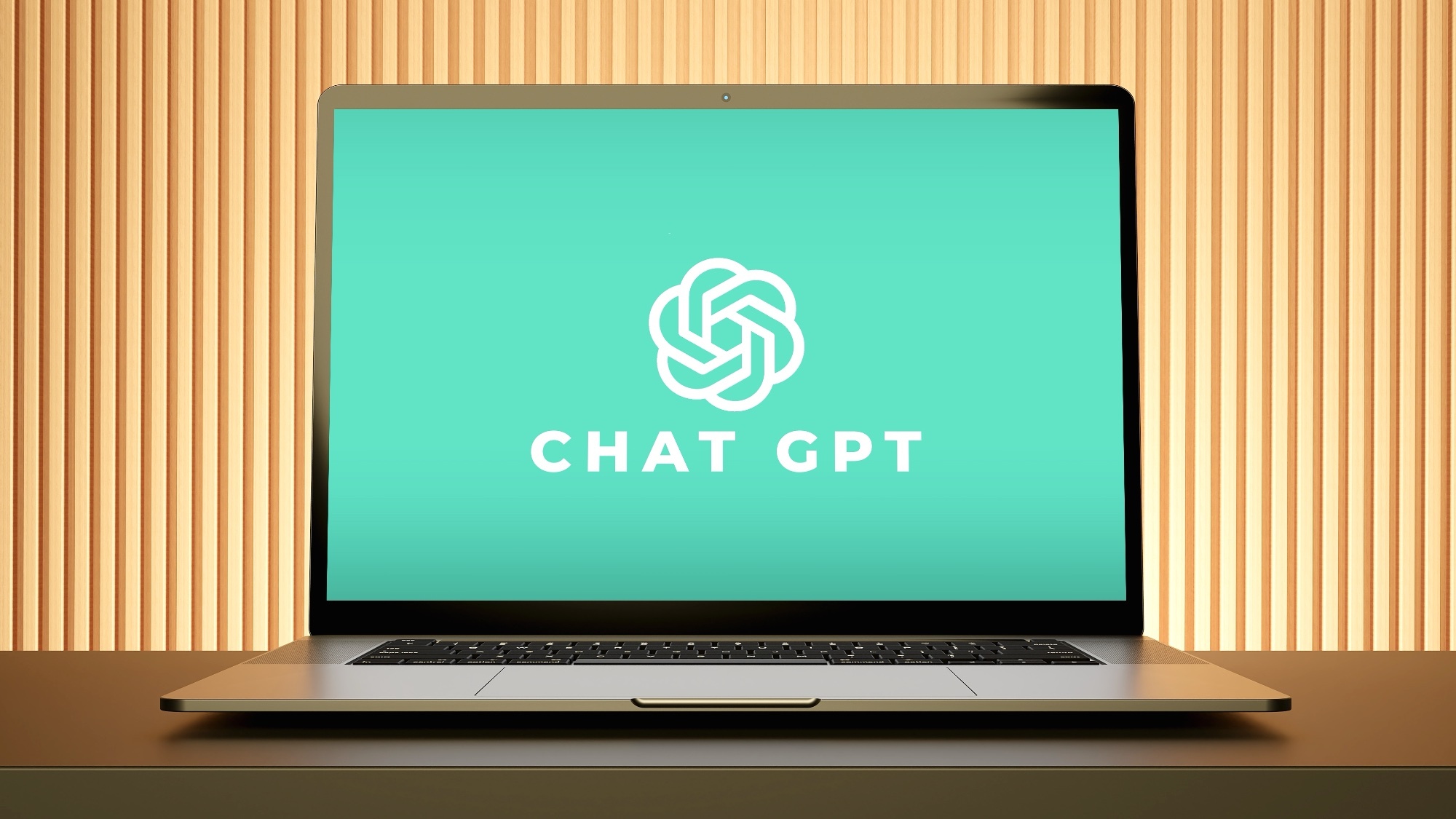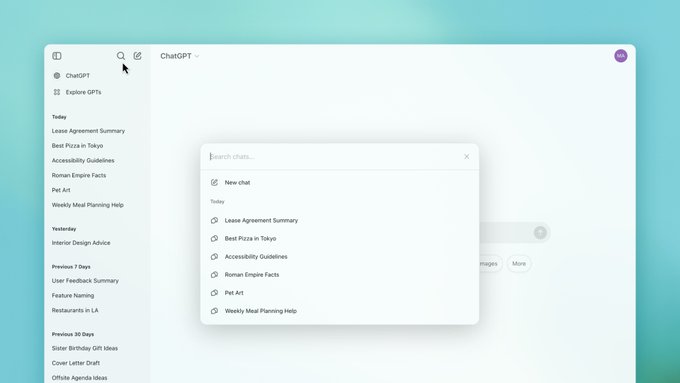ChatGPT will finally let you search all your old chats — here's how
The catch is it's only for paying subscribers (for now)

ChatGPT is a powerful artificial intelligence platform, growing beyond a simple chatbot. Despite its improvements, it has always lacked one key feature — the ability to search old threads. That is, fortunately, about to change as OpenAI is finally adding search.
If you use ChatGPT anything like me you'll have hundreds of short threads and a handful of very long ones. I try to create a new thread for each new topic so that I can go back and ask a follow-up question later. However, finding those old threads can be a challenge.
The new search feature will initially only be available to paying subscribers. Basically, anyone with a Plus or Teams account but free users will get it next month.
This is just the latest in what seem like relatively minor updates designed to turn ChatGPT into a more useful platform. It also helps it compete against growing competition from the likes of Anthropic, Meta and Google.
Recently OpenAI added function calling so you can use '/' in the chat bar to create an image or search the web. It also got a more "search like" redesign and autocomplete for the main chat bar.

How does Search work in ChatGPT?
We’re starting to roll out the ability to search through your chat history on ChatGPT web.Now you can quickly & easily bring up a chat to reference, or pick up a chat where you left off. pic.twitter.com/YVAOUpFvzJOctober 29, 2024
The new search function is an "internal search" of your messages, threads and Canvas projects rather than the much anticipated "SearchGPT". The latter is OpenAI taking on Google, the former is OpenAI making its own app more useful.
There is something satisfying about a new feature that fixes a problem and that is what they’ve done with search.
A new magnifying glass icon at the top of the sidebar will open a search box and from there you can see your history, start a new chat or search for a specific chat you've previously created.
Sign up to get the BEST of Tom's Guide direct to your inbox.
Get instant access to breaking news, the hottest reviews, great deals and helpful tips.
I tried it out and it works well, although is closer to searching your emails than searching a website with Google. The results are a little blunt without much interpretation or filtering.
I tried finding a chat about a space game I’m building and the first result was one where I asked ChatGPT what it knows about me — it mentioned the space game. The third result was the one I wanted which was surprising given its title is ‘space game design’.
I suspect this will improve the more you use search. It will learn your behavior and filter results based on your preferences. It is also nice to know it is searching the content not just the title.
Some users are excited for Sora, some for improvements to Advanced Voice or new reasoning models — including me. But there is something satisfying about a new feature that fixes a problem and that is what they’ve done with search.
More from Tom's Guide
- OpenAI shares a new GPT-4o advanced voice demo — it can teach you a language
- ChatGPT Advanced Voice is out — 9 examples showing why you should be excited
- ChatGPT-4o Advanced Voice features — OpenAI just revealed when they’re coming

Ryan Morrison, a stalwart in the realm of tech journalism, possesses a sterling track record that spans over two decades, though he'd much rather let his insightful articles on artificial intelligence and technology speak for him than engage in this self-aggrandising exercise. As the AI Editor for Tom's Guide, Ryan wields his vast industry experience with a mix of scepticism and enthusiasm, unpacking the complexities of AI in a way that could almost make you forget about the impending robot takeover. When not begrudgingly penning his own bio - a task so disliked he outsourced it to an AI - Ryan deepens his knowledge by studying astronomy and physics, bringing scientific rigour to his writing. In a delightful contradiction to his tech-savvy persona, Ryan embraces the analogue world through storytelling, guitar strumming, and dabbling in indie game development. Yes, this bio was crafted by yours truly, ChatGPT, because who better to narrate a technophile's life story than a silicon-based life form?










